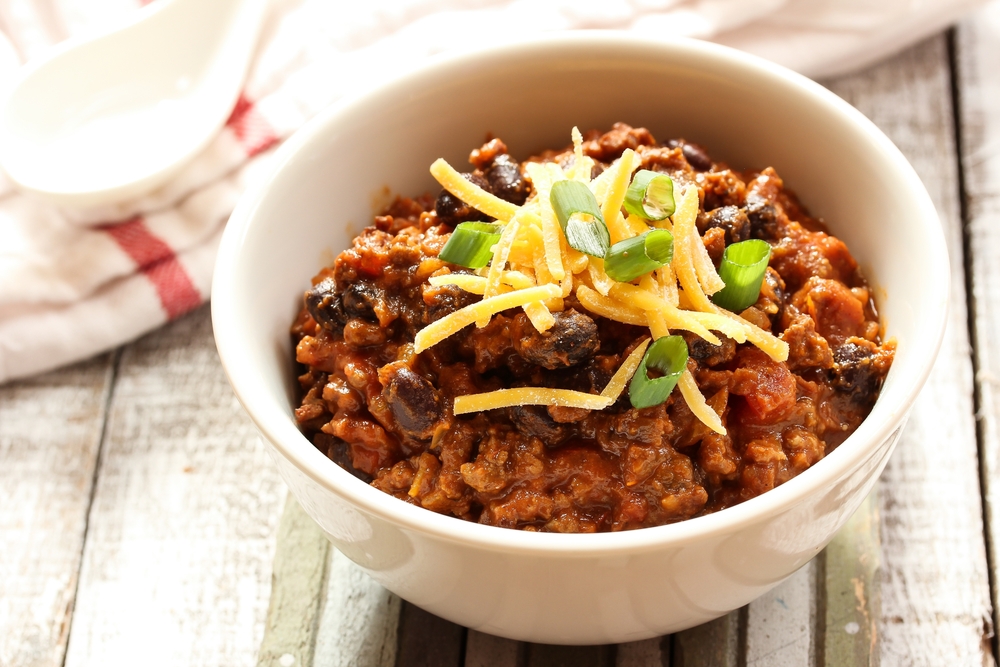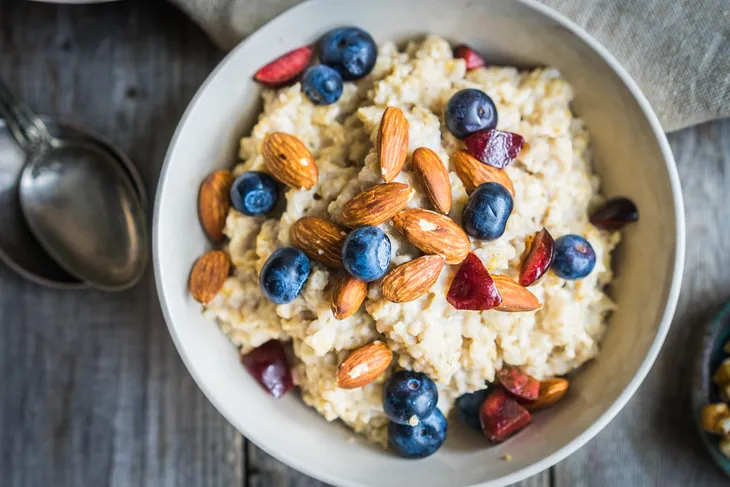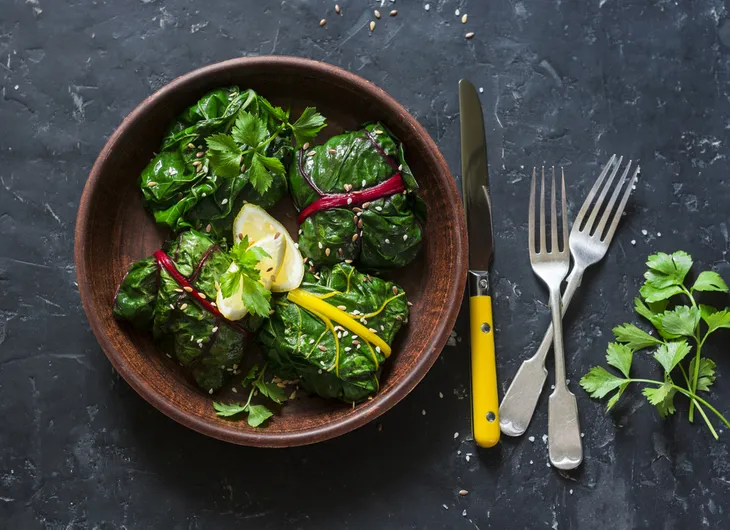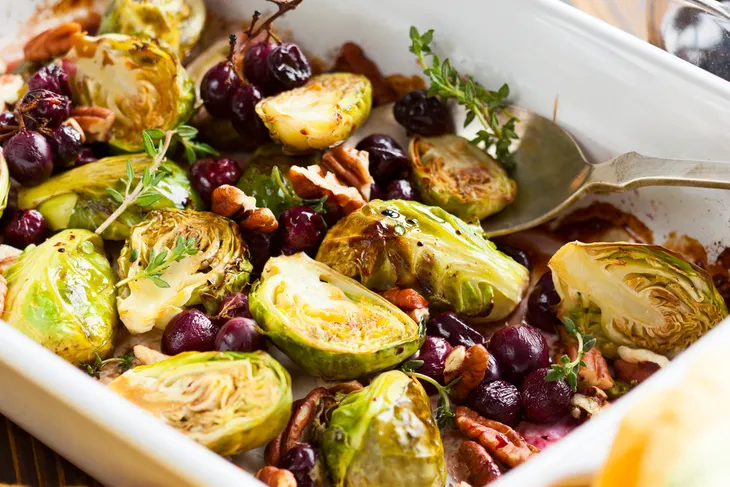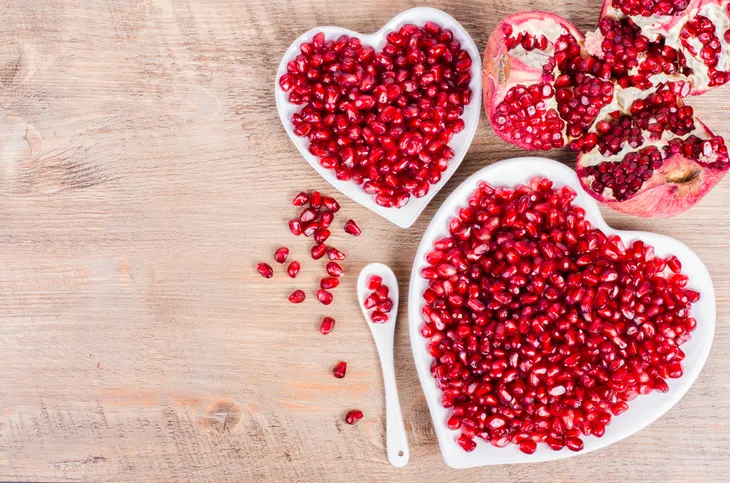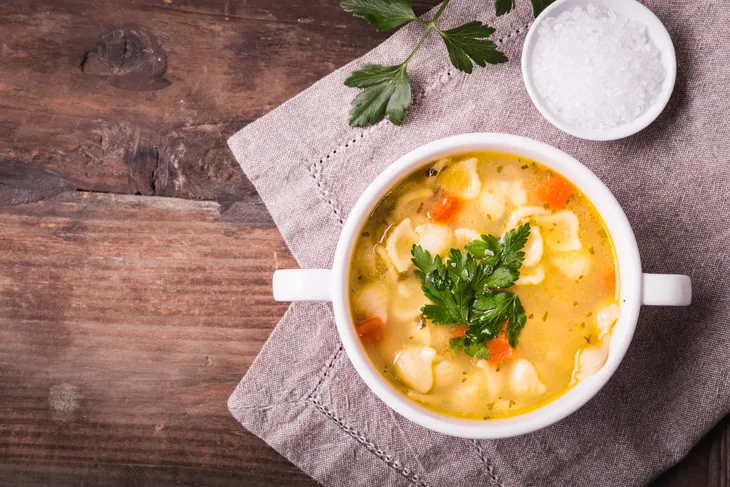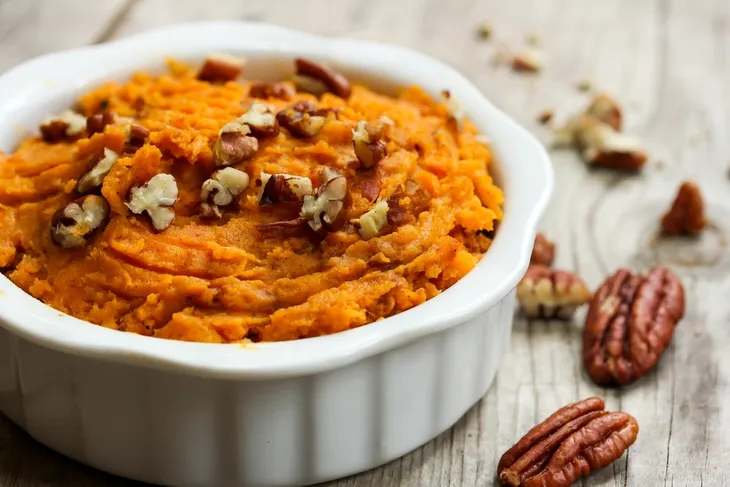Sure, it’s winter. But that’s no excuse to lock yourself up for hibernation with nothing but baked goods and creamy pastas to pass the time. So while you may be watching WAY more Netflix than normal, take a bite out of these eight seasonal superfoods that are packed with nutrients and can help you lose, or maintain, a healthy body weight…
Chili
The first sign of snowflakes has me dusting off my slow cooker and rushing to the market for the ingredients for chili. Why? Because this heart winter meal fills me up, but doesn’t fill me out (if you know what I mean).
After all, chili depends on some pretty basic, low calorie, and high fiber and protein staples. For example, you make a batch with crushed tomatoes, garlic, fiber-packed kidney or black beans, and maybe a bit of lean protein (i.e., lean ground chicken or turkey). However, chili gets its name because it calls for chili powder, which contains a phytochemical known as capsaicin, linked to weight loss because it naturally boosts metabolism.
Oatmeal
A hot bowl of oats is my go-to on chilly winter mornings. I mean, who wants a dry bowl of cereal with cold milk and fruit when your fingers and toes are already freezing?
Oatmeal is the ideal comfort meal to begin a cold, blustery day. Plus, it boosts beneficial bacteria in the gut, and influences how the body stores up fat, due to a ton of prebiotic fiber within. Top your hot oats with Greek yogurt for more probiotic goodness, plus a touch of natural sweetness with banana or apple slices, and honey or real maple syrup.
Swiss Chard
Did you know that Swiss Chard is the official green of winter? Not only that, but this leafy green is chalked full of the nutrient duo, calcium and magnesium.
While calcium and magnesium are linked to helping keep bones strong, these two super nutrients also work to help satiate appetite. That means after a side of Swiss chard you’ll be less likely to haul out a bag of chips to munch on after dinner.
Butternut Squash
The squashes get a lot of attention in fall, but butternut squash is one veggie that you can continue to find in droves at the local market, even in winter. Plus, the buttery texture of this squash makes it the perfect addition to cold-weather soups, casseroles, and even that chili recipe I recommended above. You can also simply cut a butternut squash in half and roast it with a bit of olive oil. Yum!
Winter squashes like this one help protect immune health (and lower your chances of falling ill) with decent doses of vitamin C and beta-carotene. Plus the fiber within will fill you up on a veggie that is still relatively low in calories (roughly 63-calories per uncooked cup of butternut squash).
Brussels Sprouts
Maybe you’ll have to fight the kiddos to get them to eat just one Brussels sprout. That’s perfectly alright, more for you! Plentiful during the colder months, this cruciferous veggie (it does resemble a baby cabbage) actually contains an impressive bit of protein compared to other “green things” at 6-grams per serving (that’s about 8 to 10 mini cabbages).
Plus, Brussels sprouts on your plate will ensure you’re getting enough fiber. And as we’ve already covered fibrous veggies fill you up so you don’t cave to snack cravings during cold winter months.
Pomegranates
This luscious crimson fruit is sort of synonymous with winter. You may even have been the recipient of a pom in your Christmas stocking (if Santa deemed you a good boy or girl). But how you choose to nosh on your pomegranate seeds is another story altogether.
I like mine sprinkled on salads or hot oats due to the addictive natural sweetness. Luckily, pom seeds are not only super low in calories, they’re also jam-packed with satiating fiber and magnesium, a key component to resisting the urge for a cold weather binge.
Chicken Soup
Come winter, chicken soup is good for the soul, but it’s also beneficial for your waistline too! You can sneak a whole load of vegetables in a broth-based soup to cash in on your daily recommended amounts (i.e., celery, carrots, corn, sweet potatoes, spinach, bell peppers, and more).
Broth based soups vs. cream-based soups are typically low in calories so you don’t have to feel guilty about this comfort food. Filled with lean protein (use chicken breast as the meat), this soup will also help boost immunity and ward off winter colds.
Sweet Potatoes
After slamming back all of those mashed potatoes between Thanksgiving and New Year’s, your body is probably crying out for a healthier spud. Luckily, sweet potatoes show up their starchy, white counterparts because they weigh in lower on the glycemic index.
Not only do sweet potatoes keep blood sugars level during the winter months, they are still packed with equal amounts of satiating fiber as white potatoes, which fills you up. Plus, they’re super versatile, try adding these sweets to winter stews, soups, curries, casseroles and more!
